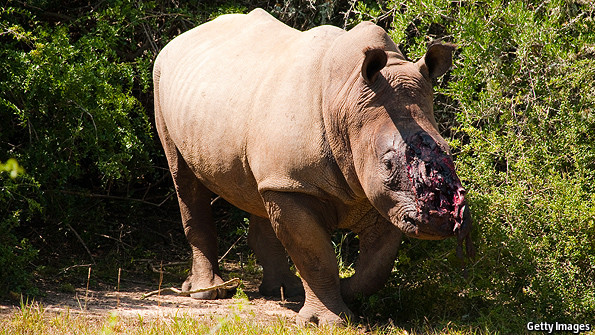As opposed to thinking of strategic ways to sell a product, governments must put their heads together to come up with a way to “un-market” rhino horns before the precious animals become extinct.
Rhino horns are a popular commodity in Asia used as a symbol of rank and for “supposed” medicinal purposes, but the latter has never been proven. The market has grown in South Africa due to an influx of Chinese immigrants, creating new records for the number of rhinoceroses killed per year.
In an effort to obliterate the market for rhinos, Tanzania has proposed a tactic in which horns will be injected with poison to discourage purchases. After all, why would anyone pay a high price for a potentially toxic product? The only concern is for the long-term health of the rhinos, possible complications with the injection, and if people will still risk buying a horn despite the dangers.
Other suggestions include educating people about rhino horns, legalizing the sale of rhino horns so as to prevent black markets while decreasing the incentive for poachers, and ―if the former suggestion goes through― increasing supply to drive down prices. Problems with these recommendations include government indecision/lack of action, possibility of more demand than supply, and the inelastic nature of the supply of rhinoceroses due to their breeding patterns.
So what else can we, as human beings, do? What are other ways to un-market rhino horns?

